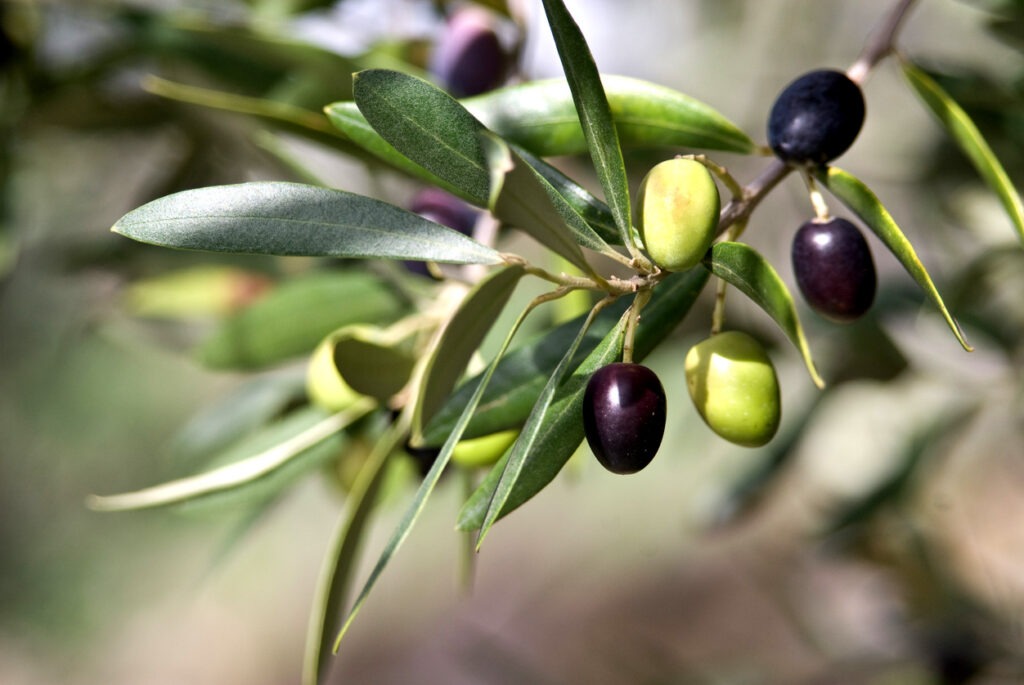Olive Plant (Olea europaea) Health benefits and Uses

Health benefits of Olive Plant (Olea europaea)
Olives, the small fruits from the olive tree (Olea europaea), are known for their remarkable health benefits. Here are some key points about the health benefits of olives:
- Rich in Antioxidants: Olives are very high in vitamin E and other powerful antioxidants, which are essential for protecting the body against damage from free radicals.
- Heart Health: They contain oleic acid, a monounsaturated fatty acid that has been linked to improved heart health, including potential reductions in blood pressure and cholesterol levels.
- Cancer Prevention: Some studies suggest that the antioxidants in olives may help protect against certain types of cancer.
- Bone Health: Consuming olives might contribute to the prevention of osteoporosis, a condition where bones become weak and brittle.
- Skin Health: The vitamin E in olives can also improve skin health.
- Nutrient-Rich: Olives are a good source of iron, copper, and calcium, which are vital minerals for various bodily functions.
- Dietary Fiber: They provide dietary fibre, which is important for digestive health and can help maintain a feeling of fullness.
It’s important to note that while olives are beneficial, they are also high in sodium due to the brining process, so it’s wise to consume them in moderation.
If you’re looking to incorporate olives into your diet, they can be enjoyed in salads, sandwiches, and as spreads in tapenades. Additionally, the healthy fats in olives are extracted to produce olive oil, a staple of the Mediterranean diet, which is renowned for its health benefits
The chemical composition of the Olive Plant (Olea europaea)
The olive plant (Olea europaea L.) has a rich chemical composition that contributes to its nutritional and health-promoting properties. Here are some of the key chemical properties of the olive plant:
- Fatty Acids: The main nutrient in the olive fruit is fat, predominantly monounsaturated fatty acids (MUFA), such as oleic acid, which makes up to 83% of the total fatty acid content1. Other fatty acids include linoleic acid (up to 21%) and palmitic acid (up to 20%).
- Phenolic Compounds: Olives contain various phenolic compounds, which are responsible for many of their antioxidant effects. These include oleuropein, hydroxytyrosol, and tyrosol.
- Vitamins and Minerals: Olives are a good source of vitamins, particularly vitamin E, and minerals like iron, copper, and calcium.
- Antioxidants: Apart from phenolic compounds, olives also have other antioxidants such as tocopherols.
- Low Sugar Levels: Table olives have low sugar levels (2–5%), which is beneficial for those monitoring their sugar intake.
- Bitter Compounds: The bitter taste of raw olives is caused by oleuropein, which can be reduced through processing.
These chemical properties are what make olives and olive oil a valuable part of a healthy diet, contributing to their role in the Mediterranean diet and their associated health benefits. Remember to consume them in moderation due to their high sodium content from the brining process.
How to Use Olive Plant (Olea europaea) as herbal medicine
Olive plants, particularly their leaves, have been used in herbal medicine for centuries due to their rich bioactive compounds. Here’s how you can use the olive plant as herbal medicine:
- Olive Leaf Extract: Olive leaf extract is obtained from the leaves of the olive tree and is available as a supplement in the form of capsules, liquid, and powder. It contains oleuropein, which has antioxidant, antihypertensive, anti-inflammatory, and hypoglycemic properties.
- Herbal Tea: Olive leaves can be used to make a herbal tea. Simply steep dried olive leaves in hot water and drink the infusion. This tea is believed to support cardiovascular health and may help lower blood pressure.
- Topical Applications: Olive oil, derived from the fruit of the olive plant, can be applied topically and is known for its moisturizing and anti-inflammatory effects on the skin.
- Traditional Remedies: In traditional Moroccan medicine, olive leaf is infused to help stabilize blood sugar and control diabetes. Crushed olive leaves have also been used historically to lower fevers and treat malaria.
When using olive plant products for medicinal purposes, it’s important to consider the dosage and potential interactions with other medications. Always consult with a healthcare professional before starting any new herbal treatment.

